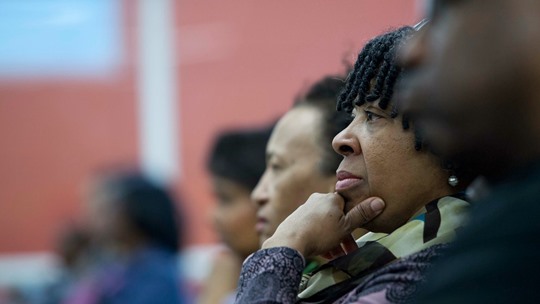Beneath the stereotype of the angry black woman is an overlooked vulnerability.
Rahiel Tesfamariam writes that black women act as if there is a war being waged against us. Yes, yes and more yes.
Tesfamariam recognizes that the U.S. still doesn’t know how to deal with the “angry black woman,” whether she’s Solange in an elevator or a woman lamenting the life of her dead son. She goes on to say, “We wouldn’t have to fight so hard if our minds, bodies and spirits weren’t constantly in danger of harm or threat of misuse.”
As a black woman, my instinct is to push down the sadness, squelch the anger, and reject the hopelessness until…I can’t any more. I feel vulnerable, sometimes daily. Mostly, weekly. I can only bottle so much fear when, after repeated exposure of my vulnerabilities as a black woman, my hopelessness bubbles over, sloshing tears all over the place.
Earlier this spring, more than 200 girls were stolen out of their school in Chibok, Nigeria. CNN claims the story went under-covered without sharable images available. Thankfully, the #BringBackOurGirls Twitter campaign took a life of its own, raising awareness and calling on governments around the world to help Nigeria bring these precious teen girls home.
The fact that their stories took a few weeks to pick up coverage, let alone prompt efforts for their rescue, is somehow depressingly normal. This nonchalant attitude is everything I expect from the world on my worst pessimistic days. On my best hope-filled days, even then our reality feels tenuous.
The message I internalize every day is that our vulnerability is acceptable and normal. Steal 200-plus teen girls to force them into sex slavery? Not newsworthy enough. Acceptable. Normal. When half of all African American women have been sexually abused by 18—including yourself—you not only feel it, you live it. I can’t conceptualize a world in which I don’t feel as if being a make woman makes me vulnerable…
Join me for the rest of this article over at Christianity Today’s Her.Menuetics blog?
















